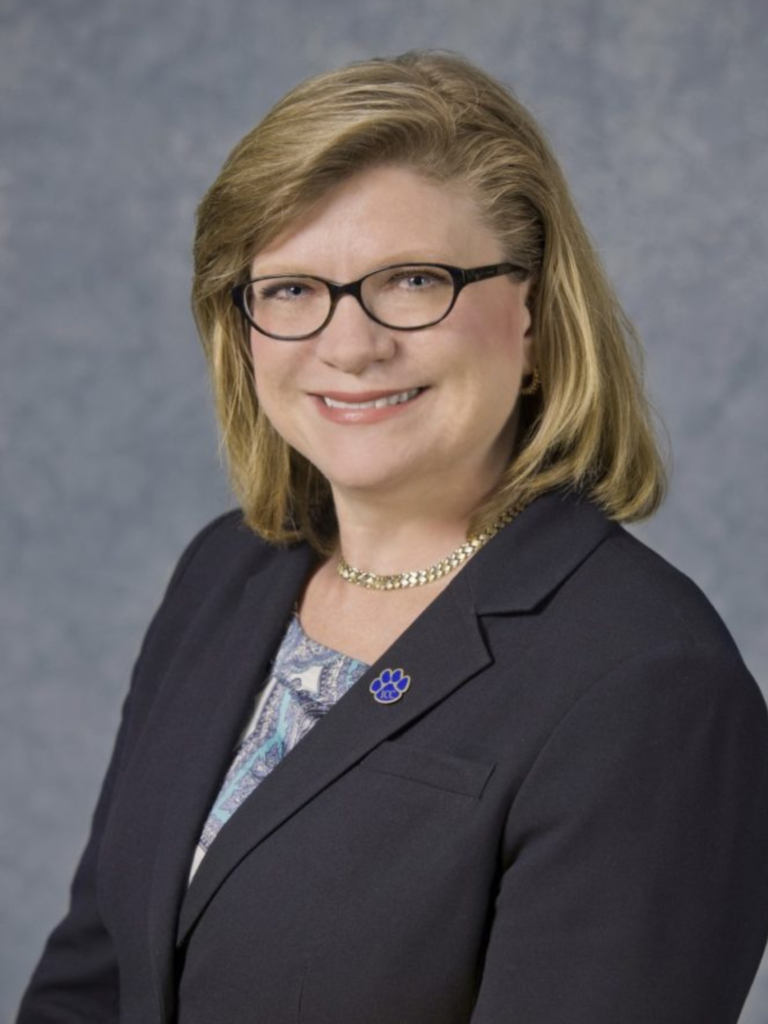ICC President Weighs in on Women in Leadership
Stephanie McClaskey
April 13, 2023
Any position of leadership comes with many responsibilities and rewards, but being a woman in leadership comes with its own set of challenges. Dr. Sheila Quirk-Bailey, President of Illinois Central College (ICC), would know. Dr. Quirk-Bailey rose from humble beginnings, growing up on a farm in Caseyville, Ill., to become the first woman president of ICC in 2016. Both her personal background and her professional experiences have given her insight into what makes for a quality leader, especially at community colleges.

Dr. Quirk-Bailey is the second eldest of five children. Her father, a factory worker, dropped out of school before graduating eighth grade and went to work. Her mother took a state test offered in Missouri, which granted her a high school completion credit. This test also came with the offer of a full-ride college education within the state, but she opted to marry Dr. Quirk-Bailey’s father and begin a family instead. She later started an in-home daycare program.
“Even though my mother didn’t have a college education, she made her choice and didn’t regret it, but she always wanted to make sure that we had that opportunity,” Dr. Quirk-Bailey explained.
Dr. Quirk-Bailey is a first-generation college graduate. She shared that her older sister chose not to attend college, her next youngest brother joined the United States Navy, and two of her younger siblings followed in her footsteps to achieve a college education. One is a chemist, and the other is a structural engineer.
“My mom was really my inspiration in terms of what you can achieve when you put your mind to it,” she said.
Dr. Quirk-Bailey was on her high school’s speech team, which helped her secure a place at Bradley University (BU) where she majored in communications and minored in business. Following her time at BU, she attended Northern Illinois University where she became the assistant speech coach as part of an assistantship. She finished her time here with a Master’s Degree in Organizational Communication.
Upon completion of her master’s degree, Dr. Quirk-Bailey entered the workforce. She worked at Andersen Consulting for seven years in the education division, assisting companies in the training of workers who were transitioning into larger manufacturing companies. She then went on to work at Harper College in Schaumburg, Ill. for 26 years. During her time in this role, she experienced the difference in opportunities offered to women in the workforce.
“I had nine different administrative positions. They would move me around as there was an area of the college that needed focus, and I would be the problem solver for that. As I moved up the tree, we would find men who had experience in maybe one or two departments being promoted, whereas I had to get the experience over nine before I made it to executive leadership,” Dr. Quirk-Bailey shared.
It was also at Harper College that Dr. Quirk-Bailey learned the impact of working for a good leader. She said that there were two college presidents who showed her the value of who sits in the top chair at an institution of higher education. One took the college to the next level, and the other didn’t do very well at all.
“Sometimes, you learn as much from how you wouldn’t do it and the approaches you wouldn’t take as you do from the approaches that you would like to emulate,” she explained.
This experience is what motivated her to return to college to achieve a Doctorate in Leadership and Management from the University of Maryland (UMD) after more than 30 years in the workforce. Her doctorate helped her to hone the skills needed to effectively lead an educational institution. Upon completing her time at UMD, she became President of ICC in July of 2016.
“It really does make a difference who’s in the top seat. Don’t get me wrong; you can’t get anything done from the top seat, it’s your amazing employees,” she said. But leadership needs “to see the vision and the focus and hopefully the motivation and the desire for an organization to grow in the same direction in a way that really changes individuals’ lives and communities that can really make a difference,” she said.
Dr. Quirk-Bailey credited her success as a leader at ICC to the staff and faculty who work together for the betterment of students and the community as a whole. She said creating an environment that promotes inclusion and gives them a part in the growth of ICC and the surrounding communities makes ICC such a vision-driven organization.
“When you’re trying to share with another human being, helping them to become what they want to become is probably the most impactful role anyone can have. I have tremendous respect for our faculty and for individuals who have chosen to devote their lives to helping other people,” she said.
Dr. Quirk-Bailey expresses that the ICC faculty is dedicated to students’ growth and development. While graduation increases remain a goal, their bigger vision is to help students, whether right out of high school, non-traditional, part-time, or part of workforce programs, take their lives to the next level and improve their overall quality of life. Providing a variety of opportunities that can be tailored to fulfill the needs of students no matter where they are in their journey or the obstacles which may threaten their dreams of higher education, is what Dr. Quirk-Bailey says is one of the greatest successes at ICC.
“If you really want an education, if you want to move forward in your life, you need to come to talk to us at ICC, because we are going to find a way,” Dr. Quirk-Bailey said.
That goes to finances, as well. ICC maintains one of the lowest tuition rates in the region at only $155 per credit hour. There are over 700 scholarships available, with one simple application process. Nearly 60% of current students qualify for state and federal funding, such as the Pell Grant and the MAP Grant. There are also apprenticeships and the Workforce Equity Initiative, which provides training to assist in promotions and advancement in credentials in a variety of fields.
“If money is what’s standing in your way, come see us, we’re going to help you find a way to make that work,” Dr. Quirk-Bailey promised.
Dr. Sheila Quirk-Bailey closed out the interview by sharing some wisdom and hope for individuals striving for leadership roles.
“When you want to be in leadership for leadership’s sake I would say just stop and re-examine because a leadership role is really a service role. If you know in your heart that you can serve well and you can help people and organizations move forward then don’t be discouraged. Not every organization is going to be the right fit, and not every culture is going to be the right fit. There will be setbacks along the way, and if you receive some feedback, well, that’s one person’s opinion. That’s one organization’s opinion. If you know that’s where you belong, don’t let that stop you. I think sometimes we self-select something based on the opinions of other people. If you’re looking to do it out of a heart of service, then continue on that path. Make your decisions in a way that promotes you to that path, and don’t let one piece of feedback or one organizational environment, or one person impact that. You’ve got to keep going.”
Check out the accompanying video interview available here.

